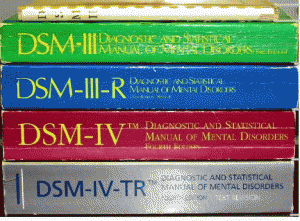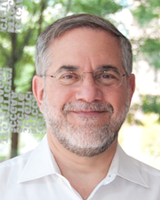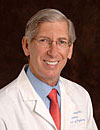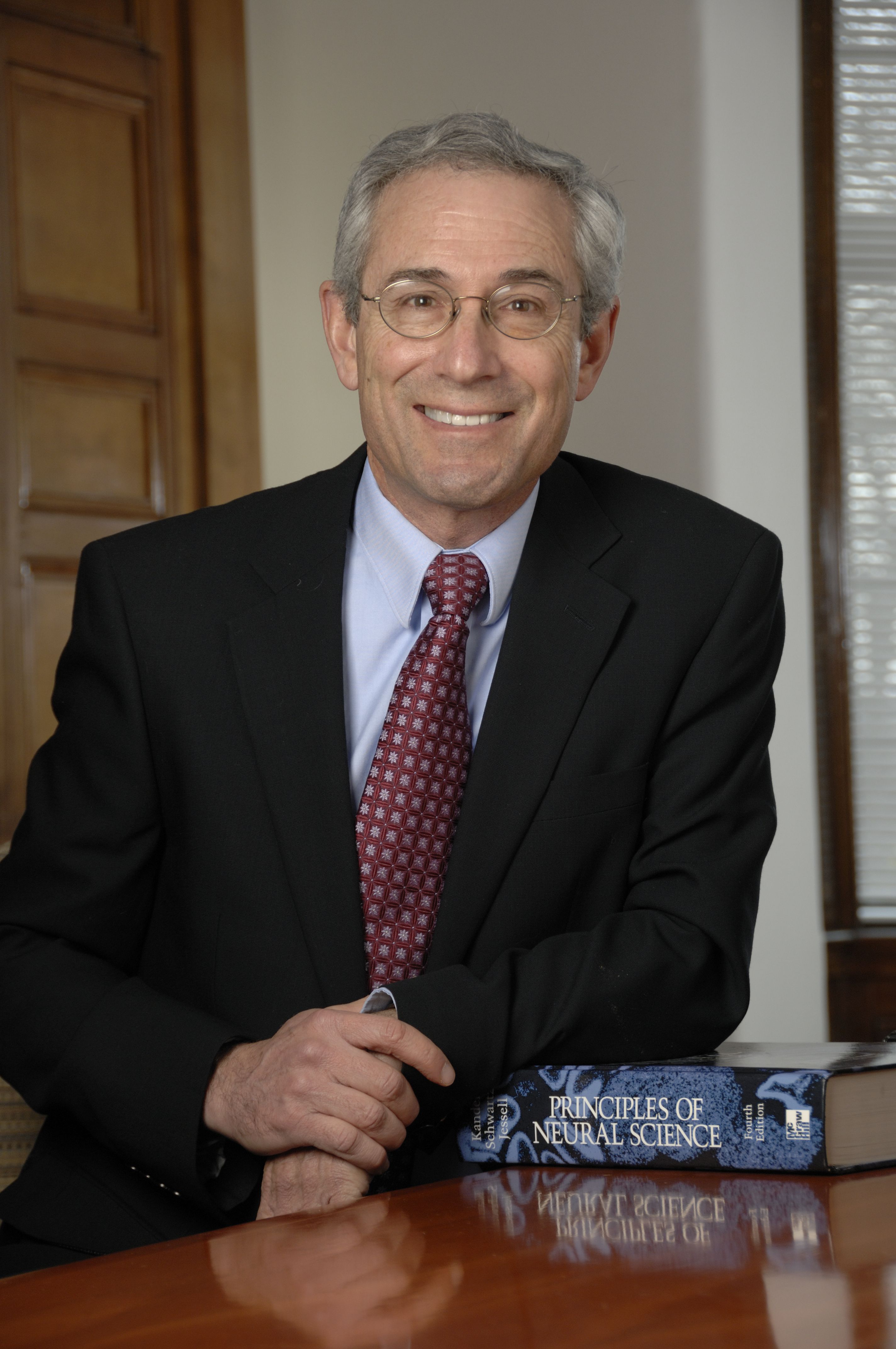Two NIMH Directors Debunk DSM & Deplore Psychiatry’s Unscientific Modus Operandi
After more than a dozen years during which we have been challenging psychiatry’s legitimacy as a medical specialty, citing the absence of a scientific foundation to support its diagnostic classificans or its chemical treatments, our criticism has been validated. Psychiatry’s house of cards has been dealt a mortal blow by the current and former Directors of the National Institute of Mental Health (NIMH): Dr. Thomas Insel and Dr. Steven Hyman, now director of the Stanley Center for Psychiatric Research at Broad Institute.
On April 29, 2013, in a sharply worded statement, Dr. Thomas Insel dismissed the validity of psychiatry ’s diagnostic and practice manual (DSM, a.k.a. “the Bible”): 

“at best, [the DSM is] a dictionary, creating a set of labels and defining each. The weakness is its lack of validity. Unlike our definitions of ischemic heart disease, lymphoma, or AIDS, the DSM diagnoses are based on a consensus about clusters of clinical symptoms, not any objective laboratory measure. In the rest of medicine, this would be equivalent to creating diagnostic systems based on the nature of chest pain or the quality of fever. Indeed, symptom-based diagnosis, once common in other areas of medicine, has been largely replaced in the past half century as we have understood that symptoms alone rarely indicate the best choice of treatment.”
The New York Times informed readers that: “Decades of spending on neuroscience have taught scientists mostly what they do not know, undermining some of the most elemental assumptions” about the nature of illnesses such as schizophrenia or “the mechanisms of the field’s most commonly used drugs –antidepressants like Prozac, and antipsychotics like Zyprexa — have revealed nothing about the causes of those disorders.” As of 2010, one in five Americans takes at least one prescribed psychiatric drug—and millions are consuming multiple, prescribed psychiatric drug cocktails.
The latest revision of the manual (DSM 5) expands the number and definition of “treatable disorders” including grief—which is classified along with major depression. The worst, most irresponsible DSM 5 expansion targets children by introducing “Disruptive Mood Dysregulation Disorder”—whose purpose is to further increase the number of children “diagnosed” and prescribed combination of psychiatric drugs—without meeting bipolar disorder criteria.
Although the DSM 5 has garnered more than the usual criticism, especially harsh criticism from the editors of the previous, DSM IV, in reality, the architects of the DSM 5 followed previous panels, expanding the diagnostic/ treatment template to increase psychiatric drug prescriptions. Indeed, the DSM IV panel had introduced a previously non-existing “bipolar disorder in children,” and broadened the criteria for ADHD. They bear much responsibility for the irresponsible increased prescribing of clinically unsupportable, harmful, psychotropic drugs for children.
On April 2, 2013, Dr. Steven Hyman, a neuroscientist and former Director of NIMH, acknowledged in an article posted on the DANA website that:
 “the underlying science remains immature…The molecular and cellular underpinnings of psychiatric disorders remain unknown; there is broad disillusionment with the animal models used for decades to predict therapeutic efficacy; psychiatric diagnoses seem arbitrary and lack objective tests; and there are no validated biomarkers with which to judge the success of clinical trials.”
“the underlying science remains immature…The molecular and cellular underpinnings of psychiatric disorders remain unknown; there is broad disillusionment with the animal models used for decades to predict therapeutic efficacy; psychiatric diagnoses seem arbitrary and lack objective tests; and there are no validated biomarkers with which to judge the success of clinical trials.”
Furthermore, he acknowledged that there is no real theoretical basis for current drug treatments for mental illness. He noted that existing treatments have not changed since the 1950s, and don’t work to improve the lives of people who suffer from real mental illnesses:
“many patients with mental disorders remain symptomatic and often disabled despite existing treatments. For some significantly disabling conditions, such as the core social deficits of autism and the cognitive impairments of schizophrenia, there simply are no effective treatments.”
“The molecular actions of all widely used antidepressants, antianxiety drugs, and antipsychotic drugs are relatively unchanged from their 1950s prototypes. Current antidepressants alter levels of the neurotransmitters serotonin or norepinephrine in synaptic connections between certain nerve cells in the brain. This is the same basic action of the first modern antidepressant imipramine, discovered in 1957. Antipsychotic drugs act on several different neurotransmitter receptors in the brain, but the critical shared mechanism of all current antipsychotic drugs is blockade dopamine D2 receptors, the same mechanism of the prototype antipsychotic drug chlorpromazine, discovered in 1950.”
Dr. Hyman called the DSM model “totally wrong, an absolute scientific nightmare,” and he attributes this paucity of science to the pharmaceutical industry’s retreat from developing new psychotropic drugs.
An astute “psychiatric survivor” commenting on Dr. Hyman’s article suggests another plausible reason for industry’s retreat:
“A more plausible reason [for is that the manufacturers of psychiatric drugs have been put on notice by the numerous legal proceedings that have resulted in record billion dollar fines for settling both civil and criminal charges related to dubious marketing efforts to promote drugs of zero to none efficacy that in addition were dangerous for those taking the drug. Particularly illuminating were the trials and tribulations regarding how “prestigious” academics (Martin Keller) colluded with a drug manufacturer (GSK) to ghostwrite a journal article to promote the efficacy of paroxetine to treat depression in adolescents based on data from a study (so called 329) that not only didn’t back the conclusion of efficacy over placebo but whose dangers (increase in suicidal though) in those taken the drugs were hidden. This were shown in painstaking detail in the DOJ material made public last year.
So far nobody has gone to jail, but the executives of these big pharma companies might have reached the conclusion that it could be only a matter of time before somebody does. It is one thing to use shareholder money to pay for fines as a way of doing business that still makes the drug profitable (as Eli Liily has publicly admitted in its annual reports) quite another to end up in jail.*
And Dr. Insel announced that NIMH will be re-orienting its research focus away from DSM categories:
“NIMH has launched the Research Domain Criteria (RDoC) project to transform diagnosis by incorporating genetics, imaging, cognitive science, and other levels of information to lay the foundation for a new classification system…we have tried to define several major categories for a new nosology. This approach began with several assumptions…it became immediately clear that we cannot design a system based on biomarkers or cognitive performance because we lack the data. In this sense, RDoC is a research framework…. a first step towards “precision medicine,” the movement that has transformed cancer diagnosis and treatment. RDoC is nothing less than a plan to transform clinical practice…”
This astounding acknowledgement confirms that no aspect of psychiatry is supported by any scientific basis. Can there be a more damning verdict?
Dr. Insel told the New York Times: “As long as the research community takes the DSM to be a bible, we’ll never make progress.”
Dr. Jeffrey Lieberman, Chair of psychiatry at Columbia University and president-elect of the American Psychiatric Association which produces the DSM, represents Psychiatry’s worst sesf-serving promoters: a purveyor of false claims and debaser of science who claims:
the new DSM “refinements were based on research in the last 20 years…”
Dr. Lieberman’s concern focuses on protecting the interests of his professional guild (the APA) rather than the harm he and his Guild caused thousands of mental patients. “The last thing we want to do is be defensive or apologetic about the state of our field.”
So far, no one has proposed a humane, clinically supportable paradigm of care to replace psychiatry’s (acknowledged) invalid diagnostic tool and and illegitimate practice guideline.
As John Hogan states in Scientific American: “leaders in mental health should perhaps do some humble, honest soul searching before they decide how to proceed. And they should think of what’s best not for their professions or the pharmaceutical industry but for those suffering from mental illness, who deserve better.”
Vera Sharav
Scientific American
Psychiatry in Crisis! Mental Health Director Rejects Psychiatric “Bible” and Replaces with… Nothing
By John Horgan | May 4, 2013What is mental illness? Schizophrenia? Autism? Bipolar disorder? Depression? Since the 1950s, the profession of psychiatry has attempted to provide definitive answers to these questions in the Diagnostic and Statistical Manual of Mental Disorders. Often called The Bible of psychiatry, the DSM serves as the ultimate authority for diagnosis, treatment and insurance coverage of mental illness.
Now, in a move sure to rock psychiatry, psychology and other fields that address mental illness, the director of the National Institutes of Mental Health has announced that the federal agency–which provides grants for research on mental illness–will be “re-orienting its research away from DSM categories.” Thomas Insel’s statement comes just weeks before the scheduled publication of the DSM-V, the fifth edition of the Diagnostic and Statistical Manual. Insel writes:
“While DSM has been described as a ‘Bible’ for the field, it is, at best, a dictionary, creating a set of labels and defining each. The strength of each of the editions of DSM has been ‘reliability’–each edition has ensured that clinicians use the same terms in the same ways. The weakness is its lack of validity. Unlike our definitions of ischemic heart disease, lymphoma, or AIDS, the DSM diagnoses are based on a consensus about clusters of clinical symptoms, not any objective laboratory measure. In the rest of medicine, this would be equivalent to creating diagnostic systems based on the nature of chest pain or the quality of fever. Indeed, symptom-based diagnosis, once common in other areas of medicine, has been largely replaced in the past half century as we have understood that symptoms alone rarely indicate the best choice of treatment. Patients with mental disorders deserve better.”
Insel said that the NIMH will be replacing the DSM with the “Research Domain Criteria (RDoC),” which define mental disorders based not just on vague symptomology but on more specific genetic, neural and cognitive data. But then, immediately after making this dramatic announcement, Insel added that “we cannot design a system based on biomarkers or cognitive performance because we lack the data.”
Hunh? So the NIMH is replacing the DSM definitions of mental disorders, which virtually everyone agrees are profoundly flawed, with definitions that even he admits don’t exist yet! What more evidence do we need that modern psychiatry is in a profound state of crisis?
Insel’s statement is also an implicit admission that there is no real theoretical basis for drug treatments for mental illness. As I have pointed out previously, drug treatments have surged over the past few decades, while rates of mental illness, far from falling, have risen.
Ironically, some pharmaceutical companies that have enriched themselves by selling psychiatric drugs are now cutting back on further research on mental illness. The “withdrawal” of drug companies from psychiatry, Steven Hyman, a psychiatrist and neuroscientist at Harvard and former NIMH director, wrote last month, “reflects a widely shared view that the underlying science remains immature and that therapeutic development in psychiatry is simply too difficult and too risky.” Funny how this view isn’t incorporated into ads for antidepressants and antipsychotics.
NIMH director Insel doesn’t mention it, but I bet his DSM decision is related to the big new Brain Initiative, to which Obama has pledged $100 million next year. Insel, I suspect, is hoping to form an alliance with neuroscience, which now seems to have more political clout than psychiatry. But as I pointed out in posts here and here on the Brain Initiative, neuroscience still lacks an overarching paradigm; it resembles genetics before the discovery of the double helix.
Since I became a science writer 30 years ago, I have heard countless claims about breakthroughs in our understanding and treatment of mental illness. And yet as the NIMH decision on the DSM indicates, the science of mental illness is still appallingly primitive. Instead of forming fancy new programs and initiatives and alliances, leaders in mental health should perhaps do some humble, honest soul searching before they decide how to proceed. And they should think of what’s best not for their professions or the pharmaceutical industry but for those suffering from mental illness, who deserve better.

